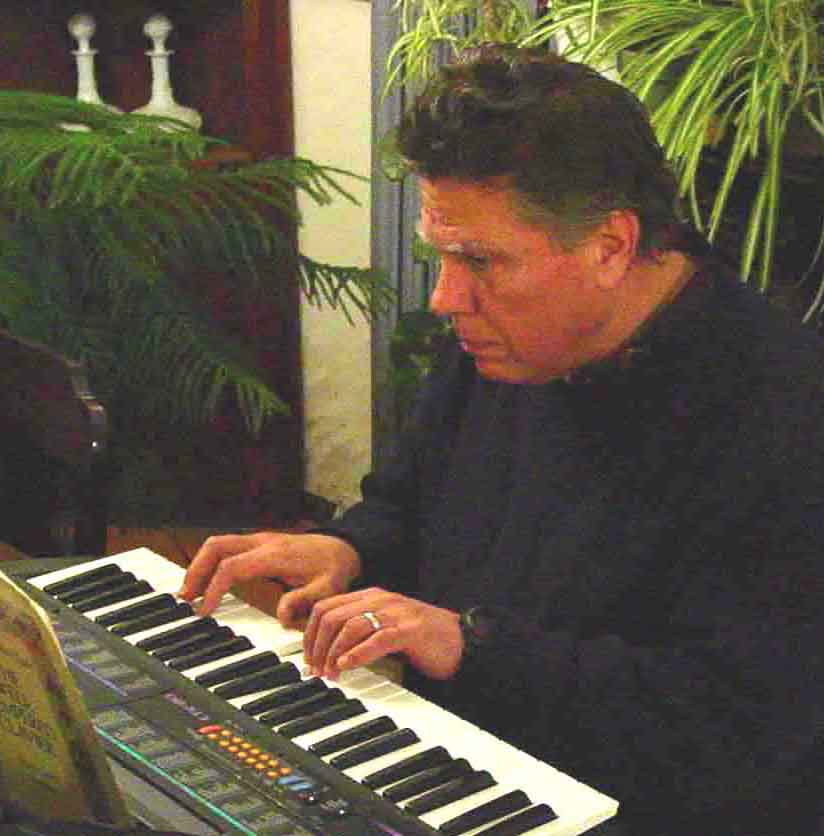Neely's Blog #1

Home
About Neely
Bill of Rights
Compositions
Contact
E-mail List
Neely's Blog
Photos
Upcoming Events
July 14, 2005, First Singing of Bill of Rights
On this beautiful Bastille Day in Connecticut I would like to take stock of
the Bill of Rights composition project. Last Sunday—July 10—a group of some
fifty singers joined me at South Church to sing through "The Bill of Rights"
for the first time in public. (Six of us met earlier at my house for a bit
of a rehearsal, and several people had the music in advance to look it
over.) There were another fifty to sixty people who just came to listen—most
of them I did not know. Among the singers were Martha Smith, Toby Twining,
Paul Anderson and of course Phyllis Bruce, all members of the late great
American Music/Theatre Group (AM/TG) which some of you who read this will
remember. Many members of the Connecticut Opera Chorus showed up (one of the
hats I wear is chorus master for Conn Op), and most of our regular
once-a-month Sacred Harp singers as well. The rest of the singers and most
of the listeners read about the event in the paper or on the web.
As promised, a video cameraman and a sound engineer from Brave New Films,
sent by the ACLU, were on hand to videotape the proceedings and interview me
and some of the singers. I will keep you posted on the broadcast of some of
this material by the ACLU, which is supposed to take place in September
2005. I also arranged for an audio recording of the singing—excerpts will be
available soon on this website for listening.
We rehearsed from 2:30 p.m. to 3:00. My strategy was to go through what I
thought were the hardest parts, leaving most of the easier stuff for real
sight reading. From the earlier six-person rehearsal it had been determined
emphatically that the setting of the Tenth Amendment is the hardest motet of
the bunch. This amendment is the "states rights" amendment (see the text
elsewhere on this site). I decided that an appropriate musical image for
delegating whatever to the individual states "or to the people" would be to
delegate a specific musical idea to each section of the chorus. So there are
four fugue subjects, and four expositions—the first begins with the tenor
subject, the second with the bass, the third with the soprano and the last
one with the alto. The fugal treatment is not like Bach or Beethoven (my
favorite fugue composers) but rather like the fuguing sections of fuguing
tunes. As I write in the score: “If William Billings had written a quadruple
fugue it might sound something like this."
After we had gone over the parts and practiced the four expositions we
worked through the setting of "cruel and unusual punishment" (completely
diatonic but relentlessly dissonant) and a few other tricky spots. Almost
exactly at 3:00 p.m. we began with the First Amendment and sang straight
through. There was one and only one breakdown. We repeated that place, got
through it, and plowed ahead. The end of the reading was greeted with
prolonged, enthusiastic applause. Many of the singers indicated a desire to
sing the piece again, and many have volunteered for a public performance.
Watch this web site for information about such events in the future.
[Sidebar Comment: There are almost 100 downloads of the First Amendment
score to date! At least four choral groups in four different states want to
do the whole piece.]
After a much-needed break for water, lozenges and general vocal rest, we
resumed singing with "Liberty" from The Sacred Harp—a great little piece by
Connecticut’s own Stephen Jenks (originally from New Canaan). The text,
written just after the American Revolution, seemed especially relevant that
afternoon:
No more beneath th’oppresive hand
Of tyranny we groan.
Behold the smiling happy land
That freedom calls her own.
From 4:00 to 5:00 we did some of the best versions ever heard in Central
Connecticut of various Sacred Harp favorites, including most of the
patriotic pieces (it was the singing closest to the Fourth of July,
remember). If any of you would like to join us—our REGULAR SINGINGS from The
Sacred Harp and other shaped note collections, old and new, take place on
the SECOND SUNDAY of the month from 2:30 to 5:00, usually in the Wesleyan
Chapel. Send me an Email to neelybrucemusic@comcast.net for details and
updates.